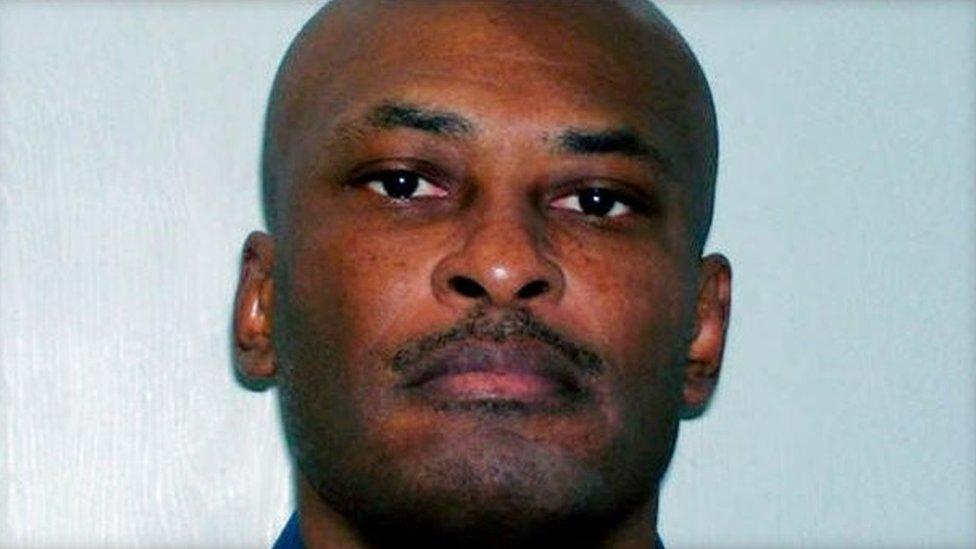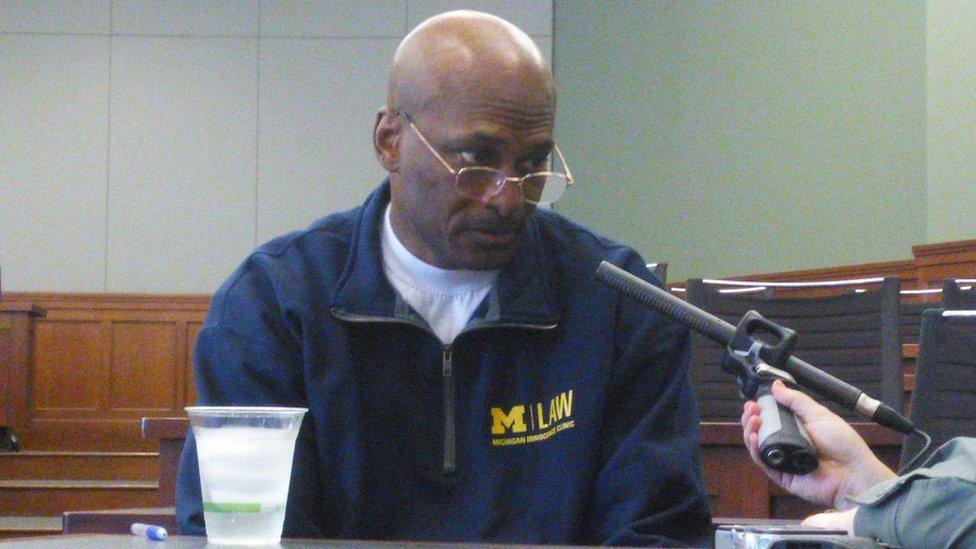Desmond Ricks exonerated after 25 years in prison over wrong bullets
- Published

"I have to move on," said Desmond Ricks outside court
US prosecutors have dropped all charges against a man who spent 25 years in prison for murder, amid allegations police had falsified evidence.
Desmond Ricks' lawyers say homicide detectives switched bullets in his mother's gun to pin a shooting on him.
He was convicted of gunning down a friend outside a restaurant in Detroit, Michigan, in March 1992, and sentenced to at least 32 years in prison.
Mr Ricks, 51, was released from prison last Friday.

Desmond Ricks heaved a sigh of relief after he was cleared
On Thursday, Wayne County prosecutor's office said Mr Ricks would not face a second trial.
"I hope you enjoy your newfound freedom," Judge Richard Skutt told the exonerated man, who heaved a sigh of relief.
Mr Ricks' case was championed by lawyers and students from the Innocence Clinic at the University of Michigan's law school.
They managed to get the investigation reopened in 2016 after pointing out that two bullets taken from the victim, Gerry Bennett, looked different from the rounds presented at trial.
Police investigators had maintained the bullets held up as key evidence were fired from Mr Ricks' mother's pistol.

Other US miscarriages of justice
A man has been in prison in the US for 23 years for shooting dead a British tourist, even though the judge in his case and police detectives believe he is innocent of the crime.

But a state police report last month established the bullets from the victim did not match the 38-calibre gun that belonged to Mr Ricks' mother.
"I've got no time to be bitter at anybody," Mr Ricks said outside Wayne Circuit Court after Thursday's hearing, reports the Detroit News, external.
"There's no excuse for what they did, but I have to move on. I just didn't want to die in prison.
"Now, I'm just trying to get some semblance of my life back. I just want to pay my taxes and be a good citizen."
Mr Ricks is expected to be compensated thanks to a new Michigan law that awards wrongly convicted prisoners $50,000 (£38,800) for each year spent in prison, which would make him eligible for $1.25m.
David Moran, director of the Innocence Clinic, said the police conduct was criminal, but no retired officers can be brought to justice because too much time has passed.
"If it happened once it would be very surprising if there's not a lot of other cases like it," he said.
The Detroit police gun laboratory that handled the case was shut down in 2008 because of errors in ballistic testing.
- Published24 May 2017
